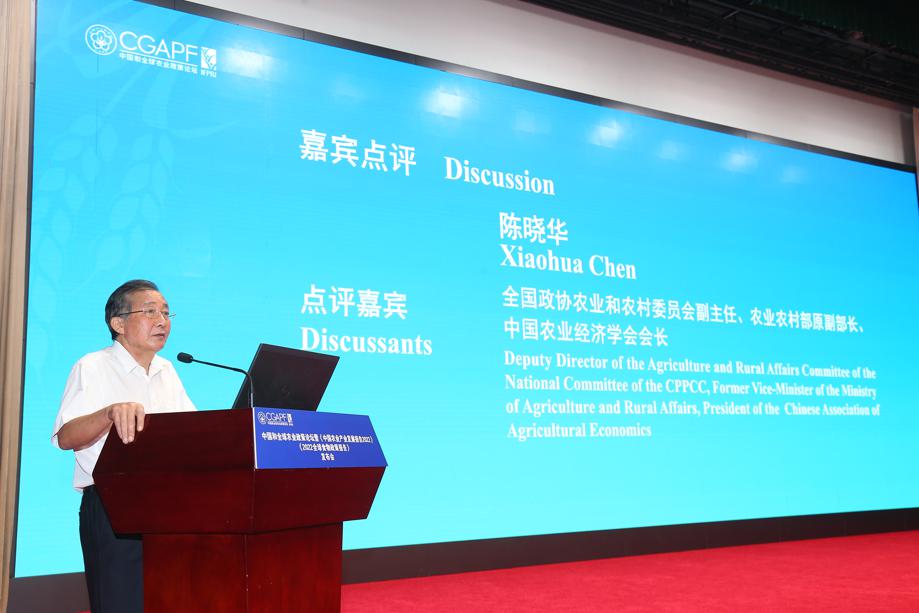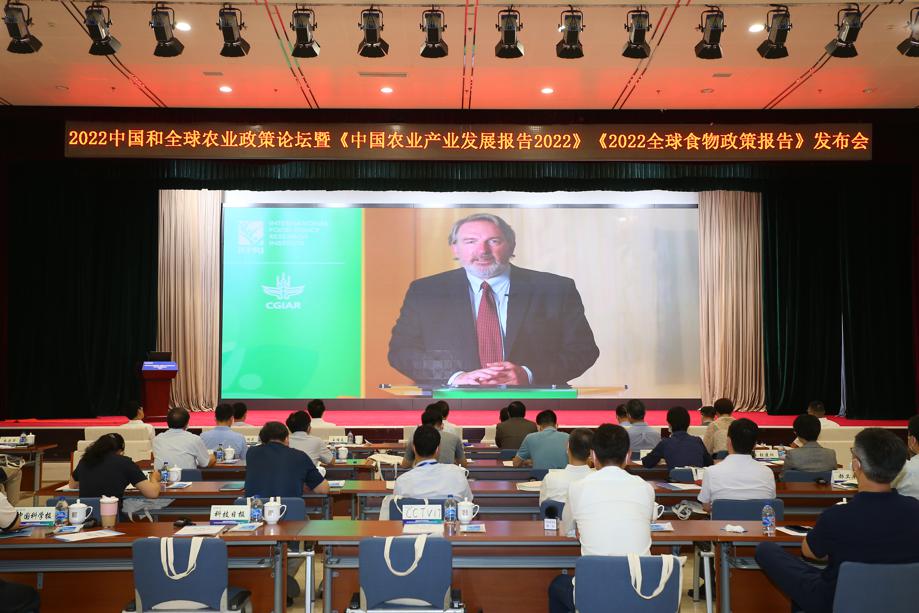Climate change closely tied with food systems


Climate change poses a growing threat to sustainable food systems which also contributes to climate change, according to the 2022 Global Food Policy Report released by International Food Policy Research Institute on Friday.
Food systems are estimated to generate as much as 34 percent of total greenhouse gas emissions and about 21 percent of these are from agriculture, forestry and other land use (AFOLU), the report said.
Channing Arndt, director of the Environment and Production Technology Division at IFPRI, said AFOLU has serious potential to become a net emissions sink, pulling more greenhouse gas emissions out of the atmosphere than it emits.
Developing countries should prioritize fostering agricultural practices that both raise productivity and turn the tide on AFOLU emissions, the report said.
Shifting food consumption toward healthy diets has also been found to have potential for emissions reduction, it said.
China's meat consumption has begun a structural transformation as the proportion of poultry meat consumption has continued to increase, and a trend of replacing red meat with white meat has appeared, according to another report on China's development in agriculture sector 2022, also released on Friday.

If the production of beef and mutton remains at the current level, and poultry meat production doubles to meet the growing demand for meat consumption and replace part of pork, 30.76 million tons of carbon emissions will be reduced and 14.74 million tons of feed grain will be saved in 2030, according to the report released by the Chinese Academy of Agricultural Sciences.
However, the eating habits of Chinese people should be taken into consideration, said Chen Xiaohua, former vice-minister of agriculture and rural affairs.
"It is right to increase the proportion of poultry meat, which can further optimize the structure of our livestock industry. We also have to integrate capacity with market recognition," Chen said.
IFPRI's report recommends all countries adopt national food-based dietary guidelines and prioritize R&D for nutrient-rich foods as well as nudge consumers toward healthy and sustainable choices.
It also gives policy suggestions to the transformation of food systems such as improving efficiency of value chains, facilitate trade and reduce food loss.
- Team formed to investigate the loss of 29 cultural relics
- Investigation into school uniforms confirms safety of waterproof layer
- Taiwan students join winter sports exchange in Tianjin
- World's largest vertical shaft boring machine deployed for cross-river railway tunnel
- Former chairman of State-owned enterprise sentenced to death with two-year reprieve
- Sichuan's ecological restoration attracts record number of migratory birds





































